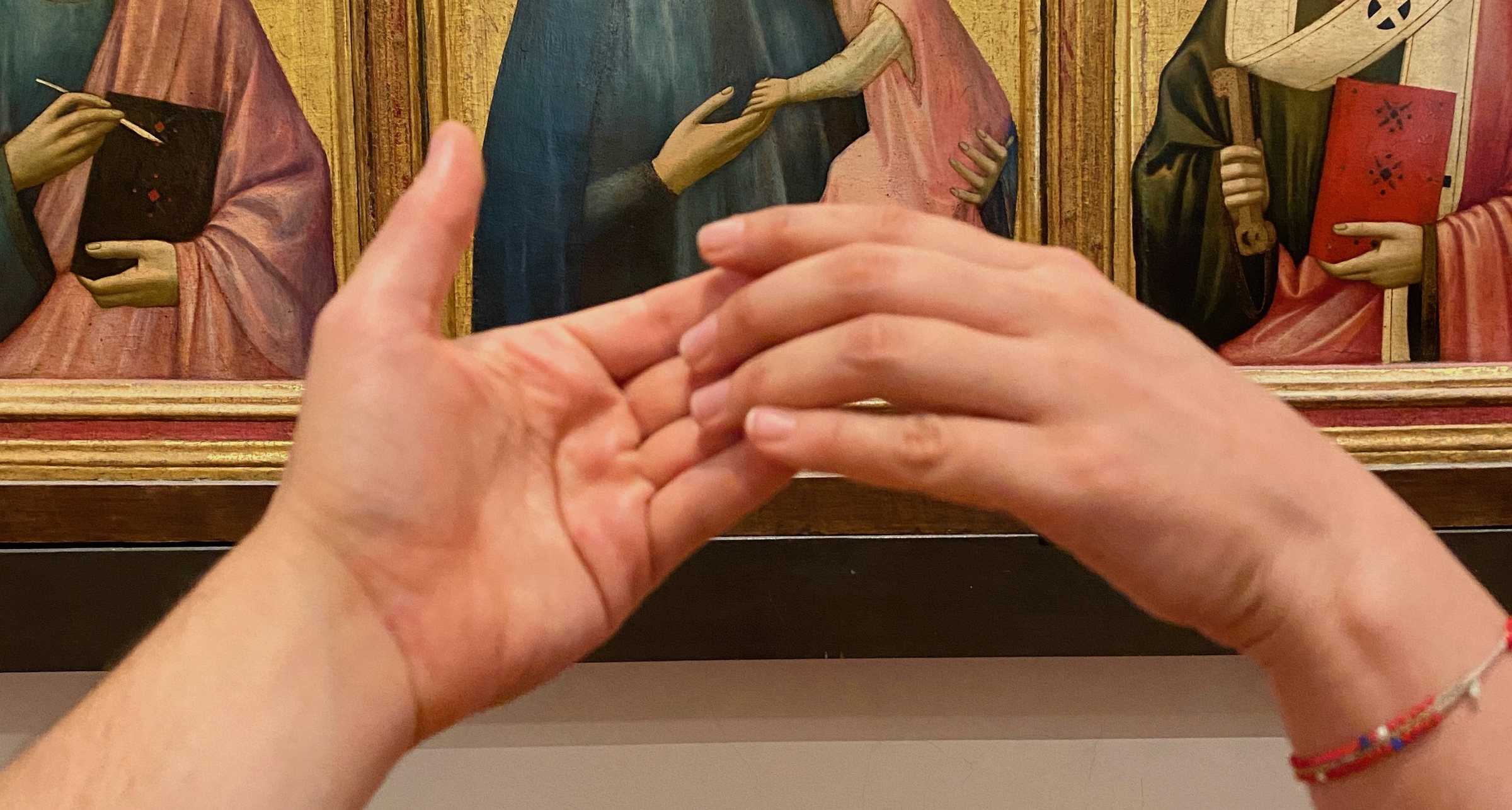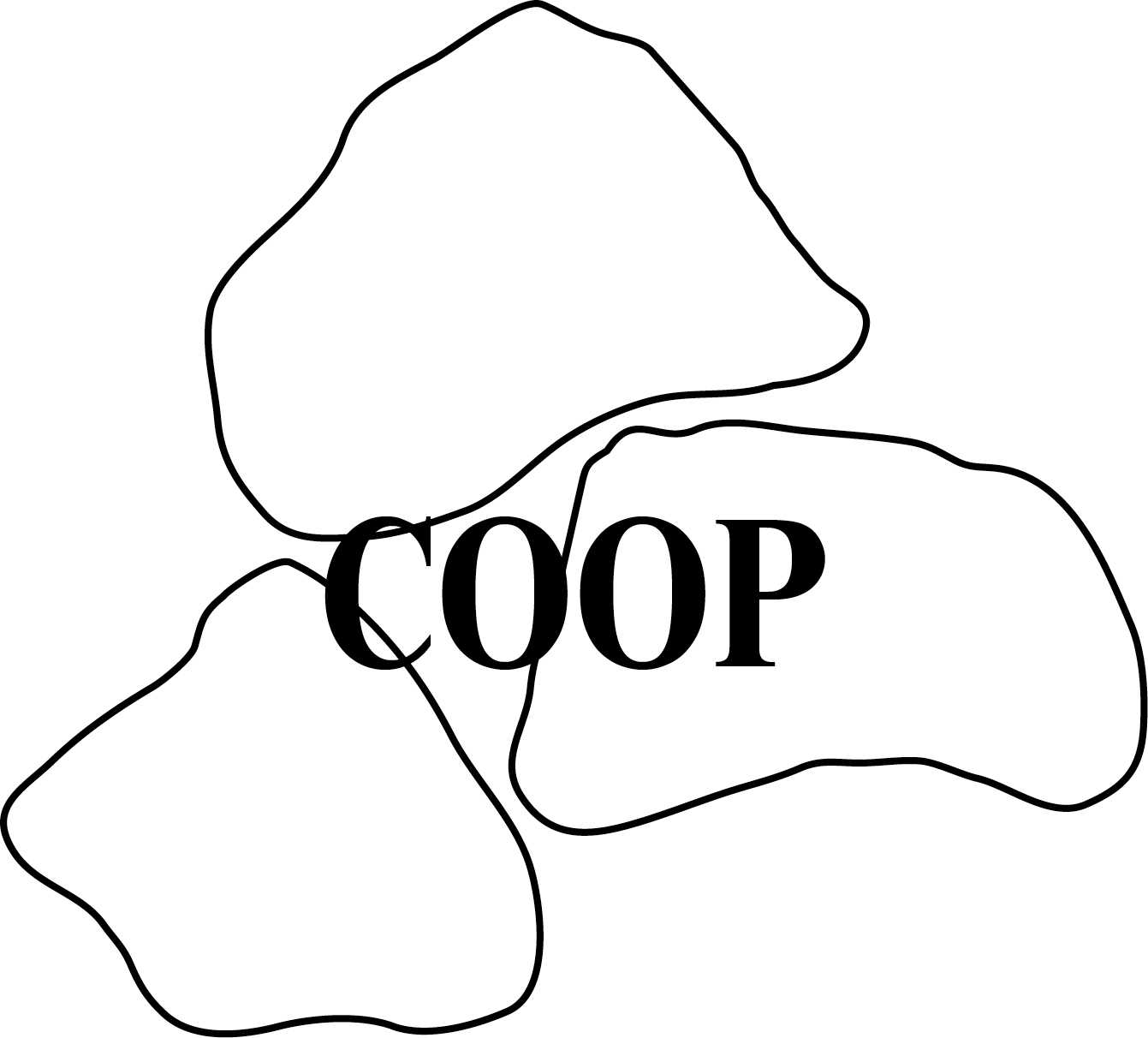2022-2023 COOP study group ~ On Tradition - Future Ancestors 3: The Mother, The Archival and The Symbolic Order
Tutor team:
Guests:
Partner:
If I Can't Dance I Don't Want To Be Part Of Your Revolution
Student participants:
Ania Yilmaz, Baoxin Liao (Bobo), Evija Kristopane, Gamze Öztürk, Gleb Maiboroda, Iarlaith Ni Fheorais, Louis Schou-Hansen, Maxi Smith, Mara Ittel, Pelumi Adejumo, Theresa Zwerschke
Student Led reflection:
Program:
Introduction to the program:
For the 3rd year of ‘On Tradition - Future Ancestors’, the COOP will focus on the tryptic: The Mother, The Archival and The Symbolic Order. At the heart of our work this year will be an attention to the pictorial, asking what role the human act of drawing has to inscribe, unearth and envision the urges of our current(s), past(s) and future(s). By bringing together our individual practices and experiences, like that of a collective unravelling scroll, what pictures might possibly unfold?
As children, it is through drawing that we start our journey in leaving our marks in the world. In the order of development, a child usually expresses interest in tools that mark, which are then cultivated towards representation and writing. While today the global literacy rate stands at 86%, only 200 years ago in 1820 could 12% of the world’s population read or write. Instead pictures and oral communication were essential. Taking in mind these rapid generational shifts, concurrent not only to technological development of printing but to social and political changes, we will use the triad of ‘The Mother - The Archival - The Symbolic Order’ to further our understanding of tradition and what it means to be a future ancestor.
The Symbolic Order
Within our thinking, it is almost impossible to think without order. Within each language, culture and many creation stories we as humans inject order to dispel chaos - but by doing so we are left with the often painful result of hierarchy, rules and subjugation. As a term, ‘The Symbolic Order’ was coined by Lacan as a way to question how we can understand the world in a constant state of connection in which you are able to enter into community/compassion with the other. In a world that has only just shifted into a dominant comprehension of the written word, we will particularly turn to the vast history of images to understand what has both been lost and gained by this. With language(s) containing its own means of dominance within itself and over other languages, we will turn to the symbolic order to investigate especially the space of the imaginary and real and the thresholds in which they enter a communion together.
Looking at our own relationship with drawing and image making, a starting point will be to see how we build our own personal iconographies and how this has manifested in our own artistic journeys so far. Since being a child, we ask what symbols and metaphors have you cultivated as a personal language and at what point it intersects with other forms of media to communicate such as writing, speech, song, cinema and the language of the body and choreography. Within the ubiquity of the smartphone and personal camera/laptop we ask what role the pencil plays in conjunction with this technology and at what point the human hand can still inscribe. In an endless motion of scrolling, image making and sharing of information on the phone, can we pause to hold, imagine and truly look to see the reality of where we truly are and where we might be going?
The Archival
Since the conception of On Tradition - Future Ancestors, the archival has been paramount. Deeply concerned with our relationship to time, the archive confronts us with how knowledge is kept, ordered, shared and preserved in order to act within the contemporary moment and look to the future. Following on with previous visits to the Archive of Padova of Amelia Rosselli and If I Can’t Dance in Amsterdam, we invite the group to explore their own relation to archives, for example through archives important to them or forms of recording such as sketch/notebooks/voice memos and how they inform your practice. By doing so, we return to Hannah Arendt and her writing that says:
‘In this small non-time-space in the very heart of time, unlike the world and the culture into which we are born, can only be indicated, but cannot be inherited and handed down from the past: each new generation, indeed every new human being as he inserts himself between an infinite past and infinite future, must discover and ploddingly pave it anew’
The Mother
Mothers give birth and they are our first connections to life and language. We often refer to life through the mother as making the leap into entities that transcends the human such as the earth or the universe. In spiritual traditions, we often encounter deities and spiritual beings that are connected to the soil and the cyclic movement of birth, death and rebirth that are often associated with maternity. Mothers manifests also through shadow and pain. But can we also think and free ourselves beyond this, and reframe completely our conception of what a mother is or possibly can be?
“I do not speak of the mother metaphorically. I speak of her realistically, and in order to be clear, I will renounce, as much as possible, the beautiful and rich language that develops from the metaphor of the mother and from the symbolism of birth. The symbolism of birth is present in various spheres, from the religious ceremony of baptism to artistic production, or to the conception (conceptus) of philosophy. These metaphors are commonly considered an acknowledgment [riconoscimento] of the magnitude of the work of the mother. But since this acknowledgment too often does not recognize the social authority of women in the flesh, I think that it is rather a way of depriving the mother of her prerogatives” writes Luisa Muraro in her masterpiece “The Symbolic Order of the Mother.” Today the leading femminist philosopher Luisa Muraro is at the age of 82 years old. With great passion she presents books, facilitates discussions and participates in meetings in the Women's Bookstore in Milan which she founded in 1976. We will read carefully throughout the year her book The Symbolic Order of the Mother (1982), where she speaks of the potential of a practice of philosophy (and let us add artistic practice) not as a critical endeavour or as a “love (philia) of wisdom (sophia)” but as ‘learning to love the mother’. Meeting the mother is meeting the deepest strata in us. Recognising the symbolic order of the mother is a step towards liberation. And learning to love the mother is...
- The COOP is a research- group component of the educational program and as such it is concentrated on the development of collaborative work. This means that we work together towards a collaborative work that is shown within the COOP SUMMIT 2023.
- The final group work can be an exhibition or performance with components of publication and other media and this is decided within the framework of our research group through the discussions and the creative assignments.
- The COOP will build connections through a series of group rituals that will include working with choreography, movement exercises, drawing, painting, visual scenography, listening, writing and translation.
- Focus on practice based making- each session will encourage a practical creative response to the research and presentation from the invited guests.
- The COOP will facilitate student led workshops- students are encouraged to consider their own practice within the frame of collective sharing. This an opportunity to think through how they might transmit their practice through collective learning and experience.
- With the COOP’s focus on visual, textural and sonic making we will explore how we create a vessel to share references and connections between our individual paths of research. The COOP tutors will provide a bibliography of their own references in which students are encouraged to add and bring their own.
- At different intervals, there will be opportunity Face to Face sessions to get to know the individual practices of the students with the tutors.
- We will engage with existing archives, while also questioning how we create an archive of our experience over the year. Students are encouraged to develop a sketch book, an archive that traces our activity during the year.
STARTING QUESTIONS THAT HAVE STARTED OUR THINKING FOR THE COOP
* How to rethink a symbolic order anew?
* What is our relation to life, nature and time?
- How do we nourish? How do we care?
- What are our values?
* What is a group, what makes us a group, what makes us individuals?
* Why do we want to be together?
* When do we draw/paint? Why do we stop drawing/painting?
* If we are to paint or pictualise/picture what is going on in our lives, what we are trying to understand, and what we want to change - what are we looking at?
* What is perspective? What is a reverse perspective?
* When do we choose not to use words? When can’t we use words?
* At what point does a cinematic, and its creation, create systems or realities rather than just be them. When the reality also slips from the painting. The painting itself is a functional object of faith, a means to encounter and truly ‘see the world’ or the essence of something.
* As we work through the year, how do we archive this work? How do we draw upon existing achievements and transform them?
* Relationship between painting and poetry: William Blake, Text within Early Renaissance, Calligraphy/Chinese.
* How is text incorporated within the visual - a symbiosis - a resistance also of a definitive language in which reading and understanding happen beyond the plains of words.
* What is the survival of images?
* What is a habit? What is the relation between habit and habitat?
* What is to make a root again after being without roots for so long?
- What is near? What is the nearest? What is far? What is the farthest?
WORD WELL
Connection - Cosmology - Relation - Symbolic Order - Unclassifiable - Perspective - Imaginary - Imagination - Visual/Vision/Visualization_ Voice - Textural - Vocal - Pictorial - Textural - Pictorial - Vocal - Textural - Visual Poem - Body Language - Gesture - Literacy - Survival - Regressional - Rebellion - Matrix of Life - Learning to love the mother- Staging - Scene - Scenography - Oceanography - Coral Reef - Clothes -Generative - Generation - Generational - Genial - Gentle - Jaw - Compassion - Community - Communication



